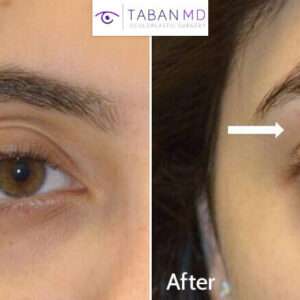Living with bipolar disorder can feel overwhelming at times—but choosing the right treatment centre makes a huge difference. Pune has several good psychiatric and psychological care centres, but they vary in what they offer. To make sure you get the best possible care, here are five essential questions you should ask before you commit. These will help you understand whether a centre is the right fit—for treatment, support, safety, and your long‑term wellness.
1. What treatment approaches and modalities do you use, and are they evidence‑based?
One of the first things to ask: What therapies or interventions do they use, and what scientific backing do those have? Bipolar disorder isn’t “one size fits all.” Effective centres combine pharmacological treatment with psychotherapy, lifestyle interventions, and support systems. Key points to check:
-
Do they have psychiatrists experienced in mood disorders who prescribe mood stabilizers (like lithium, valproate, lamotrigine, etc.)?
-
What kinds of therapy are available? Cognitive‑Behavioral Therapy (CBT), Interpersonal and Social Rhythm Therapy (IPSRT), family therapy—do they have trained psychologists for these?
-
How do they monitor medication efficacy and side effects (regular blood tests, kidney / thyroid checks etc.)? Lithium, for example, requires periodic monitoring.
-
What support is given for lifestyle: sleep hygiene, diet, exercise, stress management? These non‑medication components are critical to stability.
Asking this gives you insight into whether the centre is up to date with best practices and whether their program is holistic rather than just prescribing pills.
2. What is the experience and qualification of the staff, and how is patient safety handled?
You want to be confident that the people caring for you are skilled, qualified, and operate under rigorous safety protocols. Some things to check:
-
What are the qualifications of the psychiatrists, psychologists, psychiatric nurses, counsellors? Do they have specialization or experience dealing with bipolar disorder?
-
How many patients do they typically handle, especially for acute phases like mania or severe depression? What is the staff‑to‑patient ratio during those phases?
-
If inpatient care or residential stays are available, what are the safety and emergency protocols (e.g., handling suicidal ideation, rapid mood swings, psychotic symptoms)?
-
Are there facilities for monitoring physical comorbidities (e.g. metabolic syndrome, thyroid issues) that often accompany long‑term medication use?
These questions help you understand not just “what treatment” but how well it’s delivered and whether the environment is safe and responsive.
3. What is the cost, payment structure, and possibility of financial assistance or insurance coverage?
Often overlooked until later, cost can be a major deciding factor. In Pune, private psychiatric care or specialized centres can vary widely in pricing. So:
-
What is the cost for initial evaluation, follow‑ups, and therapy sessions? What about medication, lab tests, etc.?
-
Is the cost transparent (i.e., no hidden charges)? What does the quoted price include—you need to ask what is covered and what isn’t.
-
Do they accept health insurance (private or government schemes)? What procedures to submit claims?
-
Is there any financial aid, subsidised care, or instalment payment options?
Getting clarity here helps avoid unpleasant surprises and ensures that treatment remains sustainable over the long term.
4. What aftercare, support groups, and relapse prevention programs do you provide?
Bipolar disorder is usually chronic—mood episodes may recur; post‑episode care and ongoing support are vital. Ask:
-
After discharge or when acute treatment ends, what long‑term follow‑ups are provided? How often are the check‑ups?
-
Do they have relapse prevention plans? What strategies are used to detect early warning signs?
-
Are there support groups (peer support, family therapy), counselling, or psychosocial rehabilitation services? These help with coping, stigma, and daily‑life recovery.
-
How flexible are they in combining outpatient and inpatient/treatment intensities? For example, can you switch to outpatient care when stable, or get more intensive care if needed?
Having a clear aftercare plan is critical. Without this, there’s higher risk of relapse or deterioration when you’re transferred out of hospital or step down to less structured care.
5. What is the centre’s reputation, accreditation, and track record?
Finally, trust but verify. The best way to ensure you’re entering a centre that truly delivers is by asking about reputation and outcomes:
-
Is the centre accredited by relevant medical bodies or health authorities (for example state health department, national psychiatric societies etc.)?
-
Can you see patient testimonials / reviews? Speak with people who have used the centre (if possible) or read online reviews.
-
Do they publish any data about outcomes—rates of relapse, patient satisfaction, etc.?
-
How accessible is the centre (location, ease of transportation)? How friendly is the staff, how is the facility maintained? Small things like environment, cleanliness, privacy matter a lot.
In Pune, with traffic, location matters. If regular follow‑ups are needed, a remote or hard‑to‑reach location could become a burden and reduce treatment adherence.
Conclusion
Choosing the right treatment centre for bipolar disorder is one of the most important decisions you’ll make in your recovery journey. The wrong fit can delay your healing, increase stress, or even worsen outcomes. By asking these five essential questions—about treatment approach, staff & safety, cost, aftercare, and reputation—you can better assess if a centre in Pune is suited to your needs.
If you like, I can help you compile a list of a bipolar disorder treatment centre in Pune, along with how they stack up on these criteria, so you can compare. Would you prefer that?




